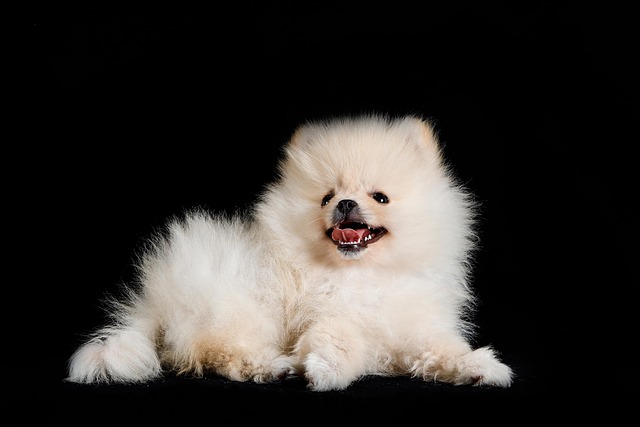
How to test for tetanus in dogs?
Tetanus in dogs often starts with subtle signs most owners miss—like a stiff jaw when grabbing a favorite chew toy or hesitation to climb stairs they once bounded up.
Your Yorkshire Terrier's tiny mouth holds a big secret that many pet owners discover too late: those adorable small teeth are magnets for plaque buildup. Unlike their larger canine cousins, Yorkies face unique dental challenges that stem from their compact jaw structure and genetics. When you peer into your Yorkie's mouth, you might notice a yellowish film coating the teeth near the gum line – that's plaque, a sticky bacterial biofilm that forms when food particles and bacteria combine with saliva.
The cramped quarters of a Yorkie's mouth create the perfect storm for dental issues. Their teeth sit closer together than in larger breeds, making it harder for natural saliva flow to wash away food debris. This proximity means bacteria have more opportunities to colonize and multiply, leading to rapid plaque accumulation. What starts as a thin, almost invisible film can quickly harden into tartar, which bonds to the tooth surface like concrete.
Left unchecked, plaque doesn't just create bad breath – it launches a cascade of health problems that can seriously impact your Yorkie's quality of life. The bacteria in plaque produce toxins that irritate the gums, leading to gingivitis characterized by red, swollen, and bleeding gums. As the condition progresses, it can evolve into periodontal disease, where the infection travels below the gum line, potentially causing tooth loss and even affecting vital organs through bloodstream contamination.
Professional dental care represents the gold standard for removing established plaque from Yorkie teeth, especially when dealing with hardened tartar that home remedies simply cannot touch. Veterinary dental cleanings involve placing your dog under anesthesia, which might sound scary but allows for thorough cleaning both above and below the gum line – areas impossible to reach effectively on an awake, squirming Yorkie.
During a professional cleaning, your veterinarian uses specialized ultrasonic equipment to break down tartar deposits, followed by hand scaling to remove stubborn areas. The process concludes with polishing to smooth the tooth surface, making it harder for future plaque to adhere. Many pet owners in the United States worry about anesthesia risks, but modern veterinary protocols include pre-anesthetic blood work and continuous monitoring, making the procedure remarkably safe even for small breeds.
The frequency of professional cleanings varies based on your Yorkie's individual needs, but most veterinarians recommend annual dental assessments starting around age three. Some Yorkies with genetic predispositions to dental issues might need cleanings every six months, while others with excellent home care might stretch longer between visits. Remember that most pet insurance plans in the US now cover routine dental care, making professional treatments more accessible than ever.
Between professional cleanings, natural remedies for Yorkie dental plaque can significantly slow accumulation and maintain oral health. Daily tooth brushing remains the most effective home intervention, though it requires patience and the right technique. Use a soft-bristled toothbrush designed for small dogs or even a finger brush, paired with enzymatic toothpaste formulated specifically for dogs – never human toothpaste, which contains xylitol that's toxic to dogs.
Start by letting your Yorkie taste the toothpaste from your finger, gradually introducing the brush over several days. Focus on the outer surfaces of the teeth where plaque typically accumulates most heavily. Many Yorkies initially resist brushing, so positive reinforcement with treats and praise helps create positive associations with the routine.
Natural dental chews and toys specifically designed for small dogs can provide mechanical cleaning action while satisfying your Yorkie's natural chewing instincts. Look for products approved by the Veterinary Oral Health Council, which evaluates dental products for safety and effectiveness. Raw bones sized appropriately for small mouths can also help scrape away soft plaque, though cooked bones should be avoided as they can splinter.
Dietary modifications play a supporting role in plaque control. Specialized dental diets feature kibble designed with a texture that creates a scrubbing action against teeth during chewing. Some pet owners find success with adding coconut oil to their Yorkie's diet, as it contains lauric acid with natural antibacterial properties, though this should be introduced gradually to avoid digestive upset.
Water additives containing enzymes can help break down plaque-forming bacteria throughout the day. These tasteless solutions simply mix into your dog's water bowl, though some Yorkies are sensitive to taste changes and might drink less water initially. Always ensure your dog maintains adequate hydration when using any water additive.
The most effective approach to remove plaque from Yorkie teeth combines professional veterinary care with consistent at-home maintenance. Think of it like your own dental routine – you brush daily but still need professional cleanings to address areas you can't reach effectively. This dual approach maximizes the time between professional cleanings while maintaining optimal oral health.
Schedule professional cleanings based on your veterinarian's recommendations, but maintain daily home care to slow plaque accumulation. Many Yorkie owners find that consistent brushing can extend the time between professional cleanings from annually to every 18 months or even longer, depending on the individual dog's genetics and oral health status.
Document your Yorkie's dental health with photos and notes about any changes you observe. This information helps your veterinarian track progress and adjust treatment recommendations. Some pet owners create monthly dental health photos to monitor changes over time, which proves invaluable during veterinary consultations.
Safety considerations become paramount when implementing any plaque removal strategy for your Yorkie. Never use human dental products, as they contain ingredients toxic to dogs. Avoid hard objects that could chip or break small teeth – this includes ice cubes, antlers, and bones that don't give slightly under pressure. Watch for signs of dental pain such as reluctance to eat, pawing at the mouth, or excessive drooling.
Professional dental care for Yorkies must comply with veterinary regulations in your state, so ensure your chosen veterinarian holds proper licensing and maintains current continuing education in veterinary dentistry. Some states require specific certifications for veterinary dental procedures, and many veterinary clinics now offer specialized dental services with advanced equipment.
Monitor your Yorkie's behavior during and after implementing new dental care routines. Signs of stress or discomfort should prompt immediate consultation with your veterinarian. Remember that positive reinforcement training principles apply to dental care – never force procedures that cause fear or anxiety, as this can create lasting negative associations with necessary health maintenance.
Regular dental care isn't just about aesthetics or bad breath – it's a crucial component of your Yorkie's overall health and longevity. By combining professional veterinary care with consistent natural remedies and safe home practices, you can effectively manage plaque buildup and help ensure your Yorkshire Terrier maintains healthy teeth throughout their life.

Tetanus in dogs often starts with subtle signs most owners miss—like a stiff jaw when grabbing a favorite chew toy or hesitation to climb stairs they once bounded up.

If you’re a new dog parent in the US—maybe you’re standing in your Ohio apartment’s pet store aisle, holding a bag labeled “senior dog food” while your 8-year-old Dachshund

If you’re a new dog parent to a senior pup in the US—maybe you’re standing in your Florida apartment’s pet food aisle

Pet owners often worry about hidden health risks for their dogs, and toxoplasmosis is one that flies under the radar for many—understanding how dogs pick it up is key to keeping them safe.

If you’re a new dog parent in the US—maybe you’re standing in your Chicago apartment, staring at your 7-month-old Poodle mix, Bella

Tetanus in dogs comes from bacteria entering open wounds—think a deep cut from a rusty fence nail during a walk, or a scraped paw from digging in contaminated soil.